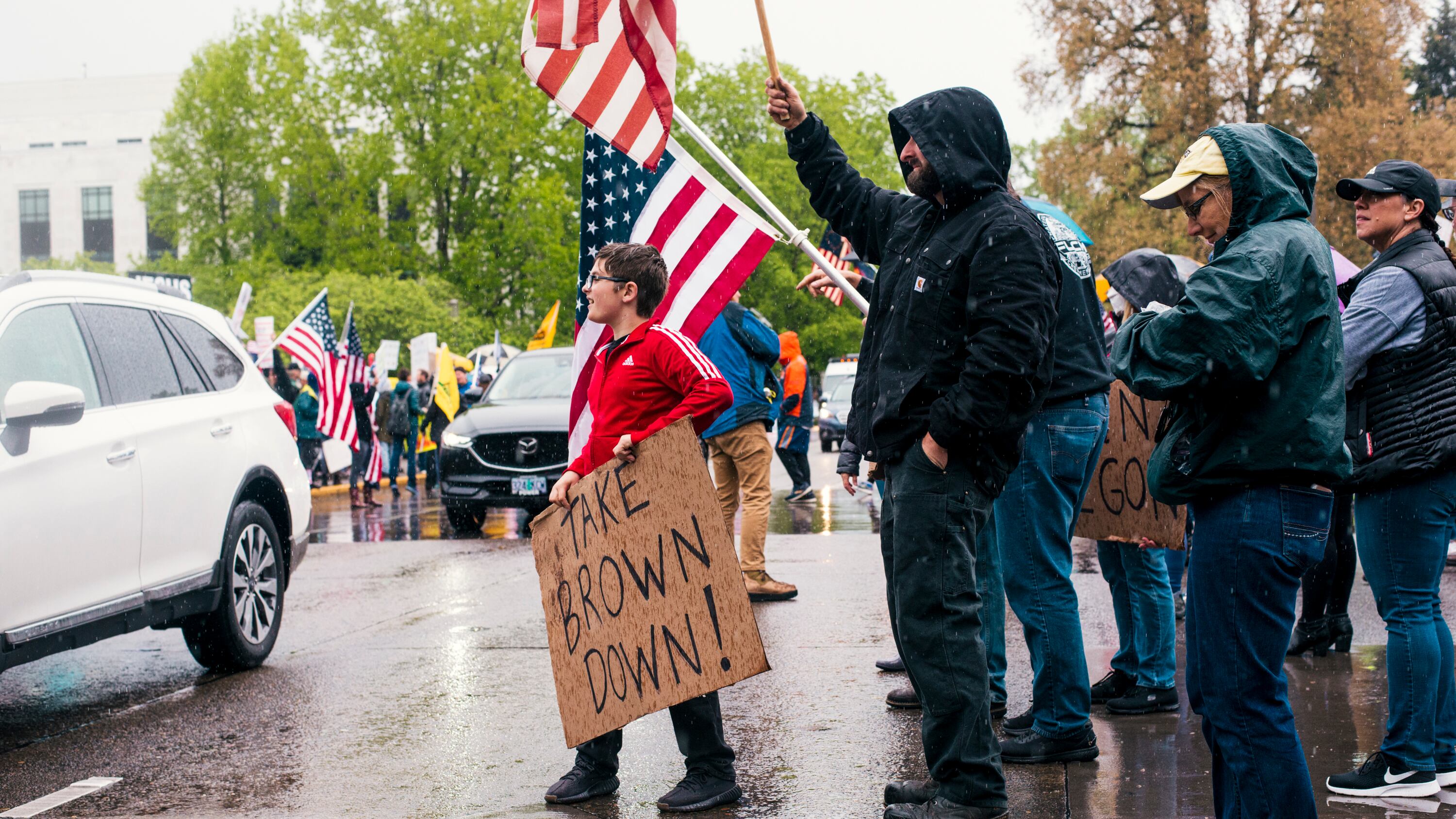A Baker County circuit judge this morning blocked Gov. Kate Brown from enforcing the closure of Oregon churches during the COVID-19 pandemic.
In issuing his preliminary injunction, Judge Matthew Shirtcliff ruled that Brown had the authority to close churches and businesses during a public health emergency. But he said the governor had exceeded the 28-day time window Oregon law allows.
Shirtcliff's ruling was extensive: He appeared to invalidate all stay-home orders the governor had issued to close churches and private businesses.
"Once the maximum 28-day period is exceeded," Shirtcliff said, "the governor's executive orders and all subsequent orders were rendered null and void."
The state's legal counsel, Christina Beatty-Walters, immediately vowed to file an appeal with the Oregon Supreme Court. Shirtcliff refused to issue a stay of his order until that appeal is filed—meaning the governor is blocked from enforcing her order unless a higher court steps in.
The ruling marks an enormous victory for the evangelical churches that sued Gov. Brown last month to reopen their doors.
Kevin Mannix, a onetime state lawmaker and candidate for governor who coordinated the church's lawsuit, celebrated the ruling.
"The governor may issue guidelines and she may encourage Oregonians to be safe," said Mannix. "She may not close down churches and businesses under pain of criminal misdemeanor charges."
Gov. Brown vowed to appeal. "The science behind these executive orders hasn't changed one bit," she said in a statement. "Ongoing physical distancing, staying home as much as possible, and wearing face coverings will save lives across Oregon."
The churches filed the lawsuit May 6, seeking an injunction of Brown's emergency powers so churches could reopen for worship services regardless of the governor's executive orders.
The initial complaint consisted of 10 churches and 20 individual plaintiffs, but the number of plaintiffs swelled to almost twice that size in the following week as news of the lawsuit spread. Three state lawmakers, Grant County Sheriff Glenn Palmer, and a handful of additional churches joined the petition.
The plaintiffs' attorneys argued that, according to Article X-A of the Oregon Constitution, Brown was required to convene the Legislature within 30 days of declaring a state of emergency.
"She failed to convene the Legislature when she should have. Perhaps, the saving grace might be to still convene the Legislature," Mannix said during a May 14 hearing. "Our position is, the governor needs to be enjoined from pretending she still has emergency powers.…She can ask, she can suggest, but she cannot order, she cannot prohibit."
The state argued that Brown is not required to use Article X-A, and that it was lawful for her to rely on other state statutes that do not require a legislative session when using her emergency powers.
Shirtcliff agreed with the state on that point—he found the constitutional limit did not apply. But he found that by invoking the state laws that specify a governor's powers during a public health emergency—Oregon Revised Statutes 433.441 to 433.452—Brown was bound by the 28-day time limit in those statutes.
Wisconsin is the only other state in the nation where a court has overruled the governor's stay-home orders.
Shirtcliff's ruling does not mean the case is over. During last week's hearing, Beatty-Walters told the judge that, should he rule in the plaintiffs' favor, the state would seek immediate review by the Oregon Supreme Court. She reiterated that intention this morning and the state filed its argument in Salem this afternoon.
Correction: This story originally said Shirtcliff agreed with the plaintiffs' constitutional argument. In fact, he found that statutes limit Brown's orders to 28 days.


